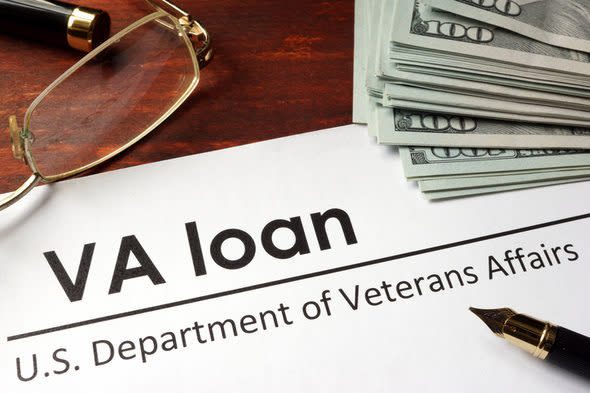All About the VA Funding Fee

A VA loan could be a great financing option for a veteran looking to become a homeowner. These loans often give active and former service members the opportunity to buy homes without making a down payment or paying for mortgage insurance. The VA limits how much veterans can contribute to closing costs. But one cost most VA borrowers can’t avoid is the VA funding fee. This is a one-time fee for VA loan borrowers that must be paid before a veteran can close on a home.
What Is the VA Funding Fee?
VA loans include a fee charged to most borrowers called the VA funding fee. This fee gets sent directly to the Department of Veterans Affairs. Funding fees help the VA cover lenders’ losses. If a borrower defaults, the VA can step in and pay off a portion of the loan. The fees also provide the VA with funding that it can put toward other costs. And they ensure that the VA can help future borrowers purchase homes.
There’s more than one way to pay the VA funding fee. You could pay it up front in cash. You could also choose to roll the fee into your loan and pay it off over time. Just note that adding the fee to your loan balance will increase your monthly payments.
How Much Does the VA Funding Fee Cost?

How much you’re required to pay in funding fees will depend on a few factors, including your military status. While VA loans usually don’t require a down payment, putting a small percentage down can reduce the cost of your funding fee. The VA will also look at whether you’ve had a VA loan or you’ve refinanced in the past.
The VA funding fee is expressed as a percentage of the loan amount. For regular military borrowers with no down payment, the funding fee is 2.15%. The fee increases to 3.3% for borrowers with previous VA loans. For those with a down payment of 5% to 9%, the funding fee is 1.5%. Any loans with a down payment of 10% or higher will include a funding fee of 1.25%.
Funding fee amounts are slightly different for Reserves and National Guard borrowers. Without a down payment, the funding fee is 2.4%. It rises to 3.3% if you’ve had a VA loan before. For a loan with a 5% to 9% down payment, the funding fee is 1.75%. Any loans with a down payment of at least 10% will include a funding fee of 1.5%.
Check out the full overview of rates for purchase and construction VA loans:
VA Funding Fee Rates for Purchase & Construction Loans Type of Veteran Down Payment Fee % (First-Time Use) Fee % (Each Subsequent Use) Regular Military 0% – 4.99%
5% – 9.99%
10% and up 2.15%
1.50%
1.25% 3.30%
1.50%
1.25% Reserve/National Guard 0% – 4.99%
5% – 9.99%
10% and up 2.40%
1.75%
1.50% 3.30%
1.75%
1.50%
VA loan refinances also require a funding fee. With a VA streamline refinance, all borrowers pay a 0.5% funding fee. With a first-time VA cash-out refinance, however, regular military borrowers pay a funding fee of 2.15%. Reserves and National Guard borrowers pay a 2.4% funding fee. Both amounts increase to 3.3% if the borrower has refinanced a VA loan before. Here’s a breakdown:
VA Funding Fee Rates for Cash-Out Refinancing Loans Type of Veteran Fee % (First-Time Use) Fee % (Each Subsequent Use) Regular Military 2.15% 3.30% Reserve/National Guard 2.40% 3.30% VA Funding Fee Exceptions

Most VA borrowers will have to pay the funding fee. However, an exemption may apply to borrowers with service-related disabilities. This means that you may not have to pay the fee if you’re receiving VA disability or you’re eligible for VA disability (even if you’ve been called into active duty or you’re receiving retirement benefits instead). You may also qualify for exemption if you are the spouse of a veteran who died as a result of an incident or service-related disability.
Keep in mind that exemption from paying the funding fee is not automatic. You must apply for it and provide certain paperwork. Required documents include a Certificate of Eligibility (proving that you’re an unmarried surviving spouse), a signed VA Form 26-8937 and/or an original copy of the VA notification of disability rating with documentation of the retirement income you received for your service. After you apply, the VA must decide whether you qualify for exemption.
Bottom Line
Unless you receive an exemption, you’ll be expected to pay a fee when you take out a VA loan. The VA funding fee can make owning a home a bit more expensive for veterans and active service members. But the VA needs the funds to ensure that it can help future veterans purchase homes.
Tips for Your Mortgage and Home Search
Before you delve too deep into your home search, make sure you have an accurate representation of what you can really afford. This involves taking into account more than just your mortgage payments, but also closing costs, insurance and more. If this calculation seems a bit too complicated to do on your own, try the home affordability calculator from SmartAsset.
Buying a home is one of the largest purchases you’ll ever make, so fitting it into your financial life could be difficult. Financial advisors often have plenty of experience dealing with this, making them great partners for prospective homebuyers. The SmartAsset financial advisor matching tool can pair you with as many as three fiduciary advisors in your area. All you need to do is answer a short questionnaire about your current financial situation and goals for the future.
Photo credit: ©iStock.com/michaeljung, ©iStock.com/designer491, ©iStock.com/DanielBendjy
The post All About the VA Funding Fee appeared first on SmartAsset Blog.
